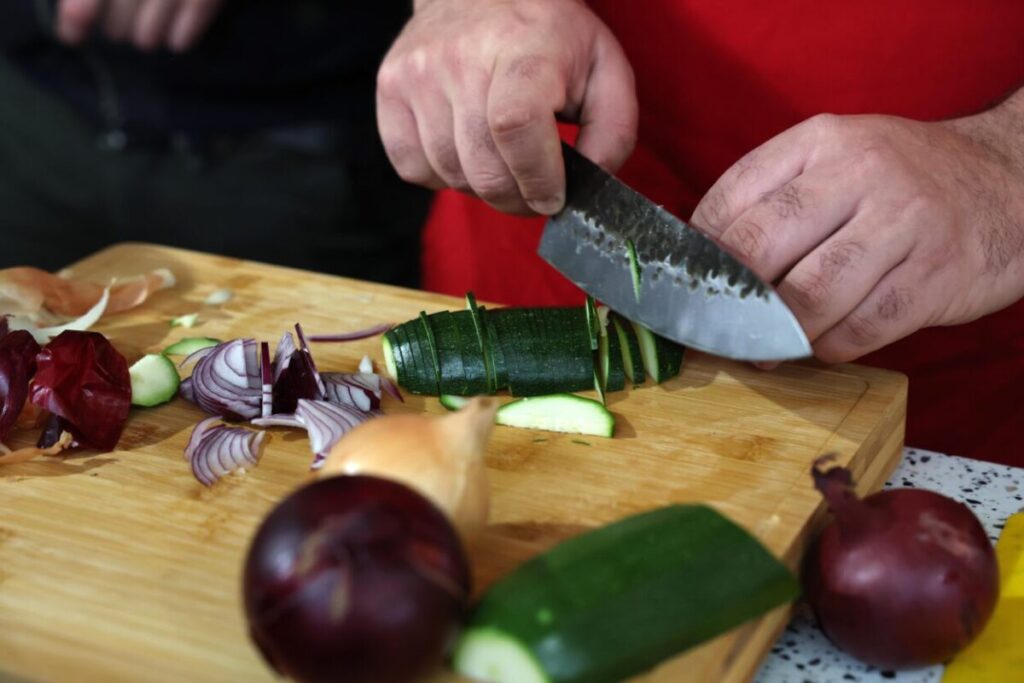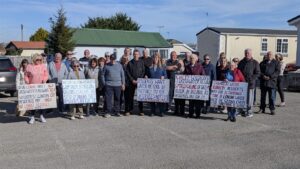Could young people hold the key to getting Wales to number one for global recycling?

- New figures reveal huge leap in food waste recycling among younger people (59% in 2023 to 74% in 2024)
- However, young adults remain less efficient recyclers compared to older age groups
-
Helping more young people recycle effectively could take Wales to the world’s top recycling spot, according to Be Mighty. Recycle campaign
-
Campaign will see Cardiff students and vegan chef Matt Pritchard host new ‘supper club’ using kitchen leftovers
Wales has seen a significant rise in the percentage of 18–24-year-olds recycling food waste, with participation jumping from 59% in 2023, to 74% in 2024. The data follows news earlier this year that Wales has climbed to second position in the world recycling rankings, behind Austria.
The new figures released today (16 October 2024) by Be Mighty. Recycle campaign during Recycle Week show that, while young people are making progress, their food waste recycling rates remain below the national adult average of 80%.
On average, 62% of Welsh adults who recycle food waste are classified as ‘highly efficient’ food recyclers, meaning they recycle most or all of their inedible food waste, ensuring little goes in the rubbish bin. This ‘high efficiency’ figure drops to just 27% among 18–24-year-olds, and 38% for those aged 18–34 – significantly lower than the national average.
The figures form part of a drive by the Welsh Government-funded Be Mighty. Recycle campaign, delivered by Wales Recycles, to encourage more young adults to make the most of the food they have and recycle anything that’s inedible.
Wales Recycles believes this could be key to helping Wales claim the top spot as the world’s best recycling nation, as well as saving people money and creating renewable energy.
Angela Spiteri, Senior Campaign Manager for Wales Recycles, explained: “Food waste is still the most thrown away recyclable item. Sadly, a quarter of the average rubbish bin is full of food, and over 80% of it could have been eaten. This is costing the average four-person shared household £84 per month, adding up to £800m a year across Wales. In addition, the food waste that couldn’t be eaten, should always be recycled.
“It’s encouraging to see younger generations improve their recycling efforts over the past year, but there’s still more to be done. That’s why, this Recycle Week, we want to show young people how they can play their part to help Wales become the top recycling nation. “
As a part of the Be Mighty. Recycle campaign, a group of Cardiff Metropolitan University (Cardiff Met) students will join Vegan Chef Matt Pritchard for a new candlelit Supper Club – with a difference.
Together, they’ll prepare quick, easy and tasty meals for their housemates, friends and neighbours. The students will be using ingredients left in the fridges and cupboards, whilst ensuring that any inedible food – such as eggshells and bones – is recycled. The aim is to inspire others to rescue their food from becoming rubbish by making the most of what they have to save money, and recycling what they can’t eat to help create renewable energy.
Holly Davies, host of the Cardiff Met podcast ‘Help! I’m Going to Uni’, who is hosting the Supper Club, said: “It’s surprising that young adults’ rates are lower than the national average. Considering young people today often lead the charge in terms of awareness and activism on environmental issues, it’s surprising that we’re lagging behind on something that’s so easy to do. Creating a sustainable world is everyone’s responsibility, so hopefully people will realise the importance of using their food recycling service.”
Matt Pritchard, a graduate of Cardiff Met himself spoke about how important it is to get younger adults to understand the impact good recycling can have, and how keen he was to take part in the next phase of the campaign. He said: “I’m looking forward to revisiting my old student haunts in Cardiff this Recycle Week. I’ll be chatting to students about the brilliant benefits of getting creative with what you’ve already got in the fridge and recycling what you can’t eat. You’ll save money, help protect our planet and even create energy from food waste. If we all do that in Wales, then we could be the best recyclers in the world! Nobody likes to come second, and in Wales we really can Be Mighty, Recycle and get Wales to number one.”
The Be Mighty. Recycle campaign is delivered by WRAP Cymru – the Welsh office of global environmental action NGO WRAP – and funded by the Welsh Government.
Deputy First Minister with responsibility for Climate Change, Huw Irranca-Davies, said: “Everyone has played their part in helping Wales become the second-best recycling nation in the world. A huge thank you to everyone for your efforts. We introduced the new workplace recycling law in April which means it’s even easier to recycle when you’re out and about, as well as at home.
“I would encourage everyone to think about not only recycling wherever you can but try to reduce the amount of waste you create in the first place. This is an important part of our journey to create a circular economy and keep resources in use for as long as possible. ”
Recycle Week runs from 14 of October 2024 for seven days. For more information about the Be Mighty. Recycle scheme go to walesrecycles.org.uk/be-mighty-recycle





